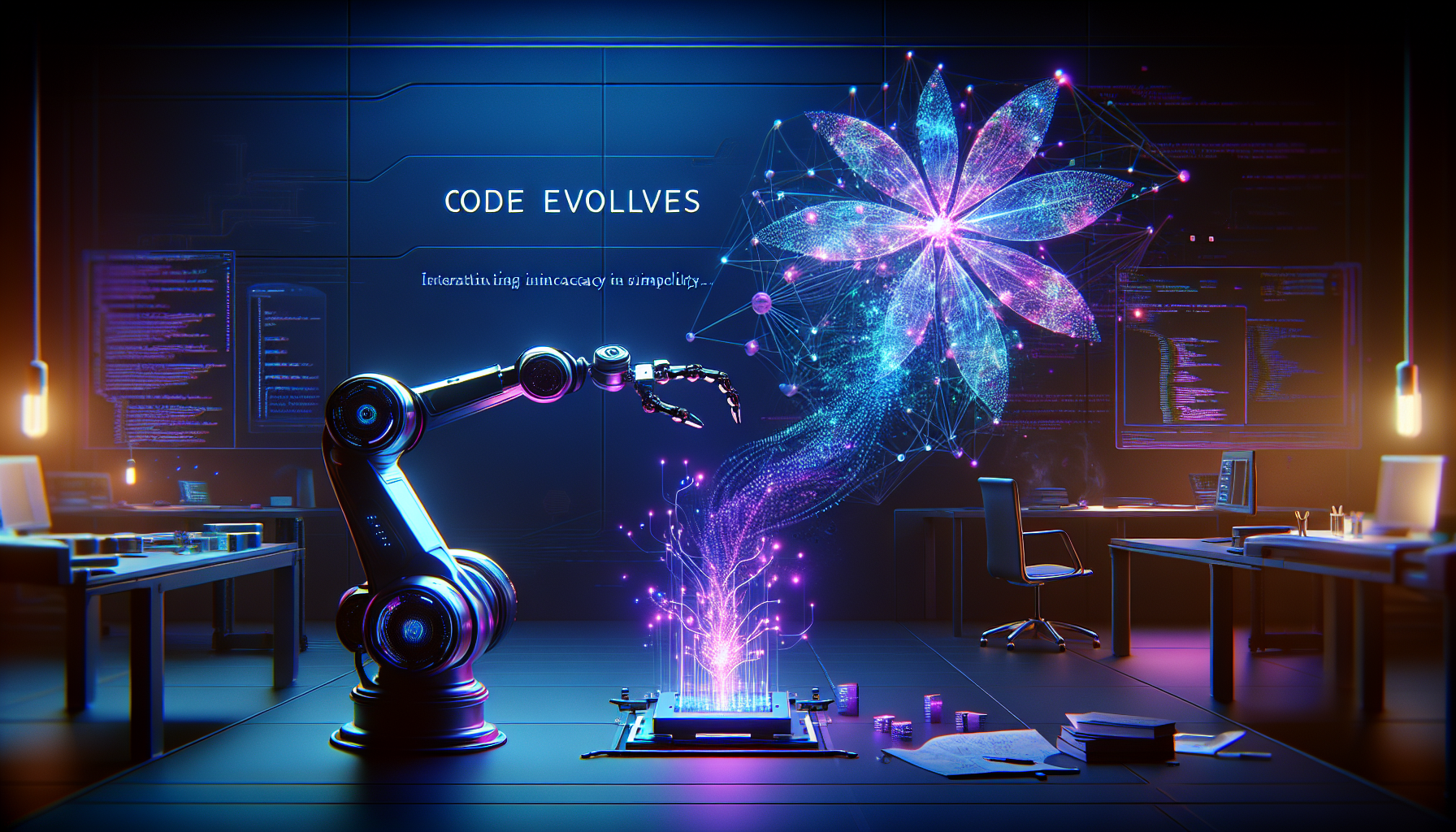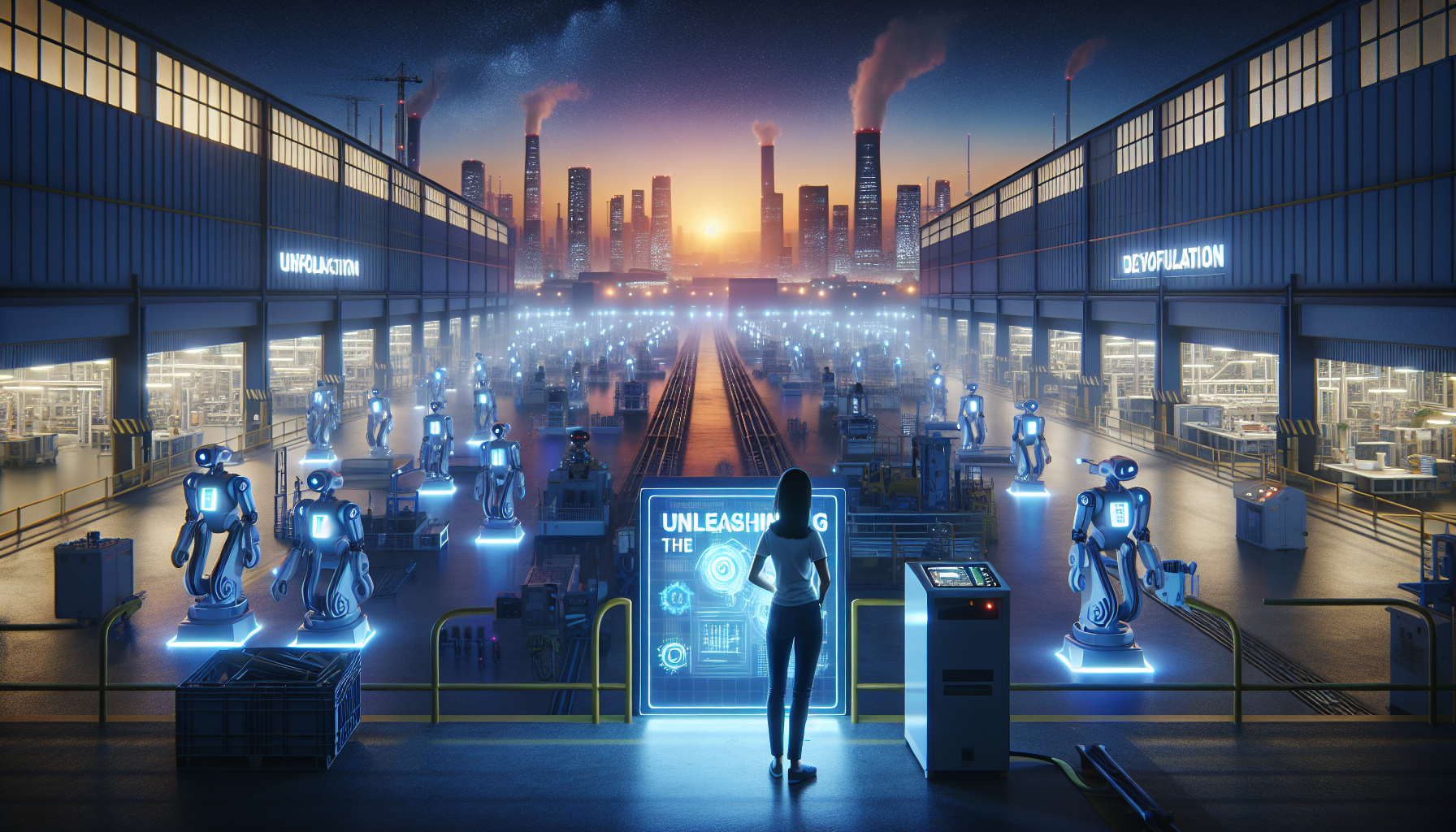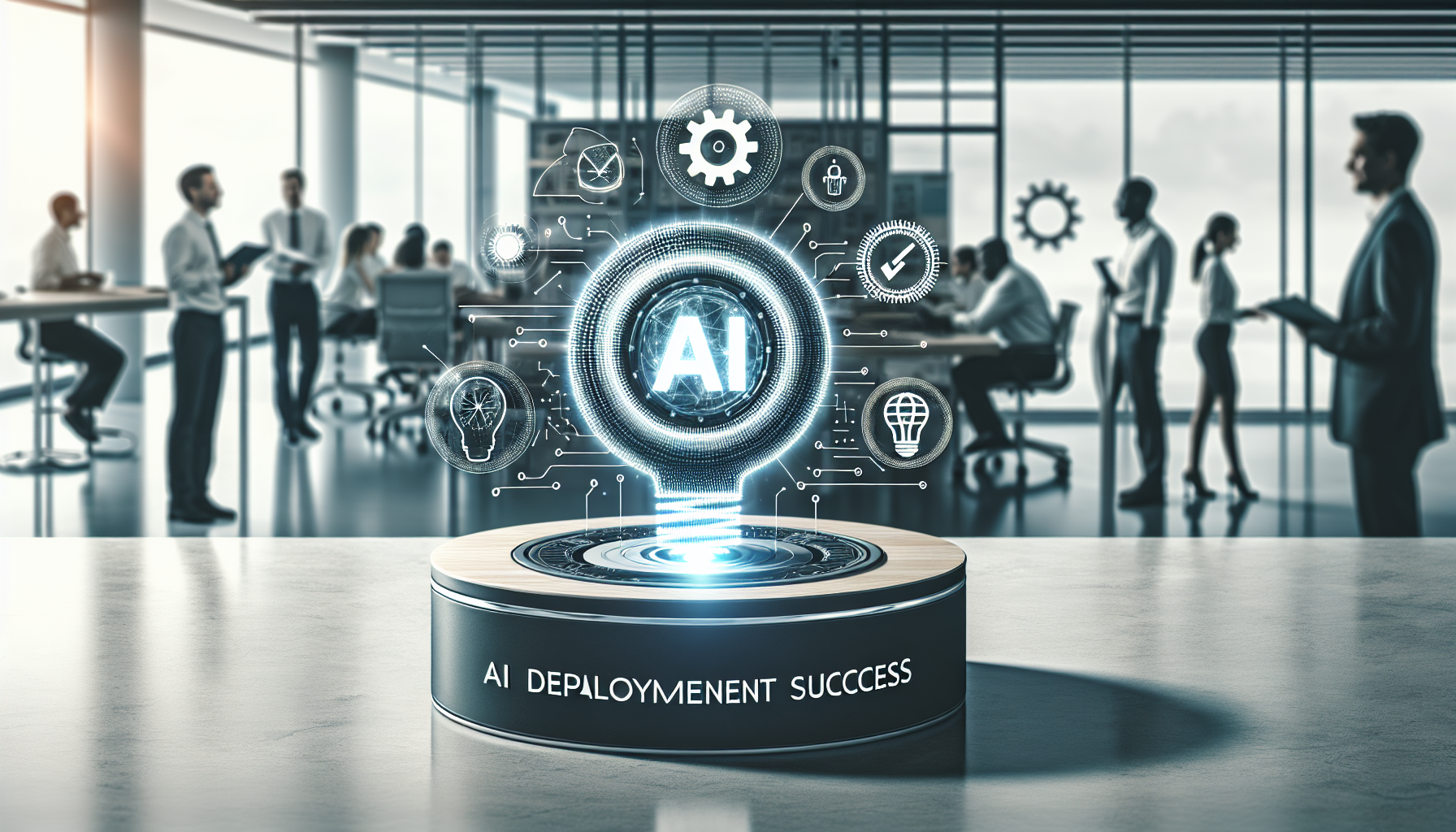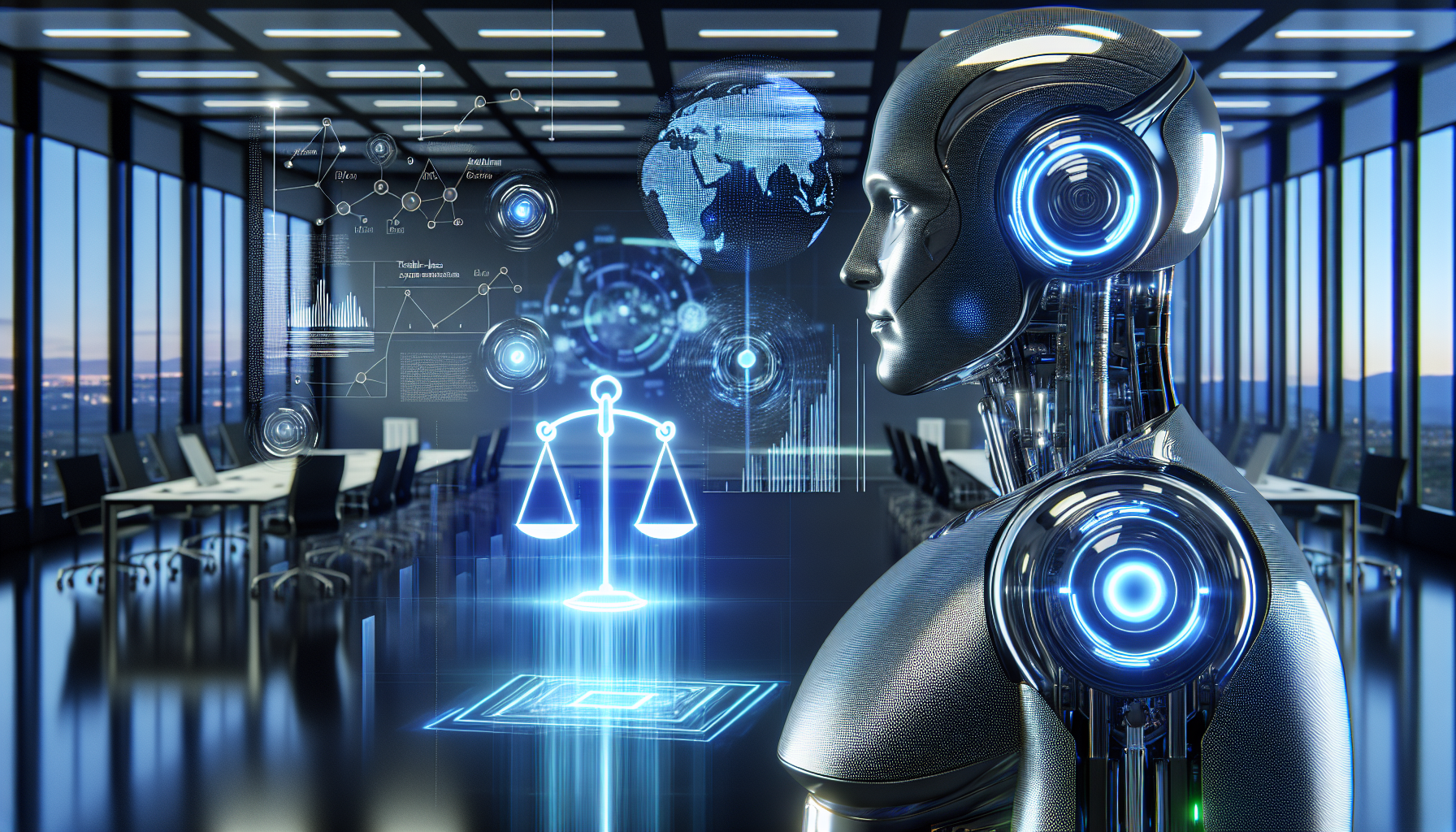The Future of Programming in an AI-Driven World: Navigating the Evolving Landscape
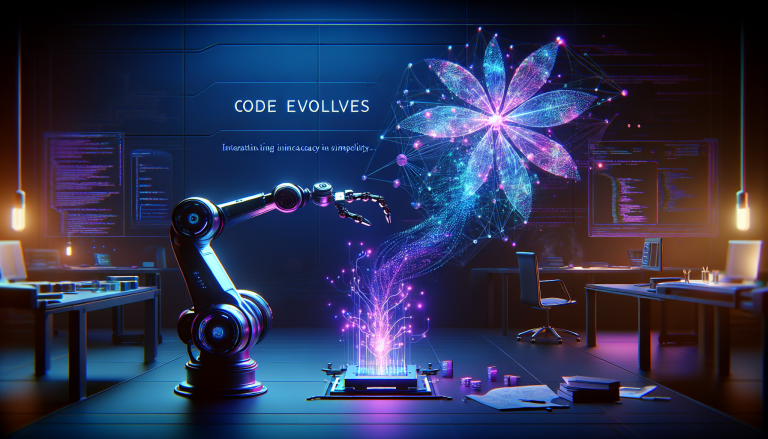
As we stand on the precipice of a new era in technology, the future of programming is inextricably linked with the rapid advancement of artificial intelligence (AI). This symbiotic relationship between human programmers and AI-driven systems is reshaping the landscape of software development, challenging traditional paradigms, and opening up unprecedented opportunities for innovation. In this article, we’ll explore the transformative impact of AI on programming, the emerging skills developers need to thrive, and the ethical considerations that will shape our AI-driven future.
The Evolving Role of Programmers in an AI-Centric Ecosystem
As AI continues to permeate every aspect of software development, the role of programmers is undergoing a significant transformation. Far from rendering human developers obsolete, AI is augmenting their capabilities and shifting their focus towards higher-level problem-solving and creative thinking. Here’s how the programmer’s role is evolving:
1. AI-Assisted Coding: Programmers are increasingly leveraging AI-powered tools to automate routine tasks, detect bugs, and generate code snippets. This allows developers to focus on more complex, creative aspects of software design.
2. AI Model Development: With the growing demand for AI-driven applications, programmers are now tasked with designing, training, and fine-tuning machine learning models. This requires a deep understanding of AI algorithms and data science principles.
3. AI Integration Specialists: As AI becomes ubiquitous in software systems, programmers need to develop expertise in seamlessly integrating AI components into existing applications and infrastructures.
4. Ethical AI Architects: With the growing concerns around AI bias and fairness, programmers are now responsible for designing AI systems that are transparent, accountable, and aligned with ethical principles.
Essential Skills for the AI-Era Programmer
To thrive in this AI-driven landscape, programmers need to cultivate a diverse skill set that combines traditional programming expertise with AI-specific knowledge. Here are the key skills that will define the successful programmer of the future:
1. Machine Learning and Deep Learning: A solid understanding of various ML algorithms, neural network architectures, and deep learning frameworks is crucial for developing sophisticated AI models.
2. Data Science and Analytics: Proficiency in data manipulation, statistical analysis, and visualization techniques is essential for working with the vast datasets that power AI systems.
3. Natural Language Processing (NLP): As conversational AI and language models become more prevalent, expertise in NLP techniques will be highly valuable.
4. Cloud Computing and Distributed Systems: AI-driven applications often require scalable, distributed architectures, making knowledge of cloud platforms and distributed computing essential.
5. Ethical AI and Bias Mitigation: Understanding the ethical implications of AI and techniques for mitigating bias in AI models will be crucial for responsible AI development.
6. Interdisciplinary Knowledge: Familiarity with domains like psychology, cognitive science, and philosophy can provide valuable insights for designing more human-centric AI systems.
The Convergence of Human Creativity and AI Capabilities
One of the most exciting aspects of the future of programming is the potential for synergy between human creativity and AI capabilities. This convergence is giving rise to new paradigms in software development:
1. AI-Human Collaboration: AI systems are becoming active collaborators in the development process, offering suggestions, generating code, and even participating in pair programming scenarios with human developers.
2. Adaptive and Self-Improving Systems: Programmers are now designing AI systems that can learn and adapt in real-time, continuously improving their performance without explicit reprogramming.
3. Creativity Augmentation: AI tools are enhancing human creativity by generating novel ideas, exploring design alternatives, and even composing music or creating art, opening up new avenues for creative programming.
4. Intuitive Interfaces: The future of programming will likely see more intuitive, natural language-based interfaces that allow developers to express high-level intentions, with AI systems translating these into executable code.
Ethical Considerations and Responsible AI Development
As AI systems become more powerful and pervasive, the ethical implications of their development and deployment are coming to the forefront. Programmers of the future will need to grapple with several key ethical considerations:
1. Transparency and Explainability: Developing AI systems that can explain their decision-making processes in human-understandable terms will be crucial for building trust and accountability.
2. Fairness and Bias Mitigation: Programmers must be vigilant in identifying and mitigating biases in AI models to ensure fair and equitable outcomes for all users.
3. Privacy and Data Protection: As AI systems process vast amounts of personal data, ensuring robust privacy protections and compliance with data regulations will be paramount.
4. AI Safety and Control: Developing safeguards and control mechanisms to prevent unintended consequences or malicious use of AI systems will be a critical responsibility for future programmers.
5. Human-AI Interaction: Designing AI systems that complement and enhance human capabilities, rather than replace them, will be essential for creating a harmonious human-AI ecosystem.
The Road Ahead: Challenges and Opportunities
As we look towards the future of programming in an AI-driven world, several challenges and opportunities emerge:
Challenges:
– Keeping pace with rapidly evolving AI technologies and methodologies
– Addressing the potential job displacement caused by AI automation in certain programming tasks
– Ensuring diversity and inclusivity in AI development to prevent the perpetuation of biases
– Navigating the complex ethical landscape of AI development and deployment
Opportunities:
– Creating more intuitive, efficient, and powerful programming tools and environments
– Developing innovative AI-driven applications that solve complex real-world problems
– Pioneering new paradigms in human-AI collaboration and creativity
– Shaping the ethical and regulatory frameworks that will govern AI development
Conclusion: Embracing the AI-Driven Future of Programming
The future of programming in an AI-driven world is both exciting and challenging. As AI continues to reshape the software development landscape, programmers have the opportunity to become architects of a new technological era. By embracing AI as a powerful tool and collaborator, cultivating a diverse skill set, and maintaining a strong ethical foundation, programmers can help shape a future where human creativity and AI capabilities combine to create unprecedented innovations.
As we stand at this pivotal moment in the evolution of programming, one thing is clear: the future belongs to those who can harness the power of AI while retaining the uniquely human qualities of creativity, empathy, and ethical reasoning. The programmers of tomorrow will not just write code; they will orchestrate complex symphonies of human and artificial intelligence, working in harmony to solve the world’s most pressing challenges.
